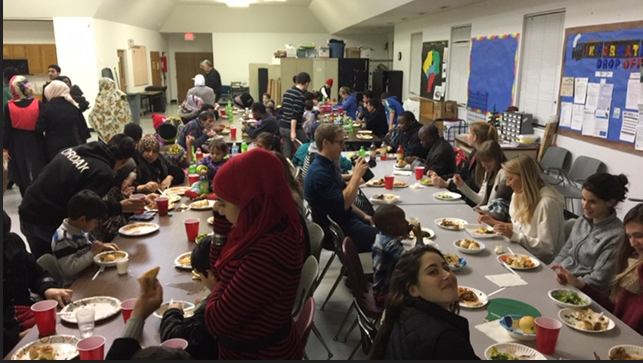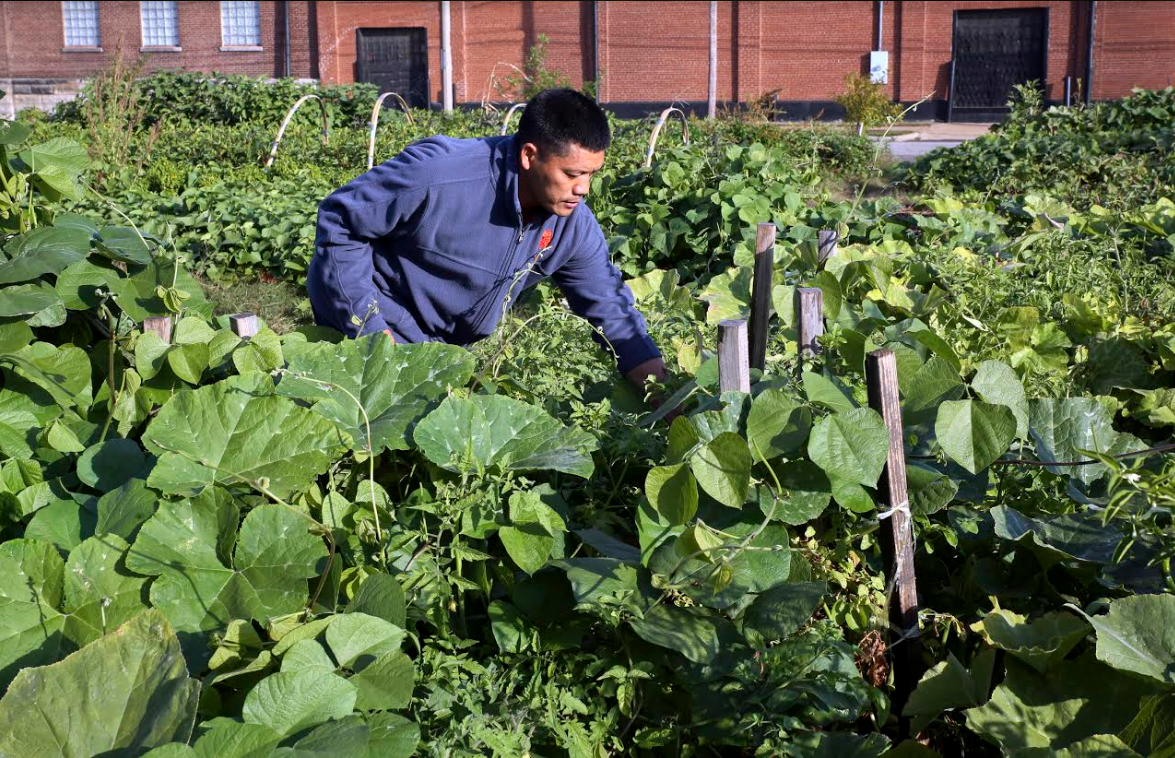Embracing Refugees by Cultivating New Connections

In an age of travel bans and closing borders, communities across the United States continue to welcome recently arrived refugees into their neighborhoods. As a student at Washington University in St. Louis, a city troubled by economic disparity and home to an often isolated resettled refugee population, it was hard not to notice how insulated my campus was from its surrounding neighborhoods. I wanted to change that.
Eager to escape the campus bubble, I got involved in refugee farming community located just a few miles from my dorm. The Global Farms Program (GFP), sponsored by the International Institute of St. Louis, enables refugees and migrants to come together with other members of their new communities through urban farming. Two of my classmates and I started an on-campus organization called Cultivating Connections that partnered with GFP.
GFP was born out of refugees’ desires to farm in order to feel more connected to their lives back in their home countries. With that in mind, the International Institute launched four urban farms available to refugee farmers in various neighborhoods throughout St. Louis County.

The International Institute is part of a national network of welcoming centers for new Americans. With a mission of helping new Americans become productive members of society, the Institute provides services to more than 7,500 immigrants and refugees from 80 countries each year. Services include employment training, language classes, legal assistance, and the farm program.
The goal of GFP is twofold: to provide farmers with access to healthy foods and to increase economic opportunity by promoting the sale of their produce in local farmers markets. In addition to growing locally available fruits and vegetables, participating farmers grow crops that are indigenous to their home countries, thereby introducing some of their native tastes and culture into their new communities.
Many corporations, faith-based organizations, and schools also enjoy outings to the farm throughout the year where they participate in community service and engage with the refugees. In 2017, the farm logged more than 1600 volunteer hours. Joel Walker, the longtime director of GFP, explains: “We educate the volunteers on the refugee process, why resettlement is important, and the economic benefit refugees provide to the city. The St. Louis community is learning a lot.”
I saw this firsthand with the Cultivating Connections group. On a bitterly cold day in February 2017, ten of us traveled out to the farm and spread woodchips to prepare the soil for planting later that spring. After a few hours, a Syrian woman and her four children approached us. She said they recently moved to the neighborhood in January. When we explained that we were converting the lot into a community garden, she was extremely excited. She was thrilled to know that she would look out her window to see a garden.
She showed us the thermos in her hand. Would we be growing any herbs, she asked? She loved to make a spiced tea from mint leaves. She had seen us working, knew we’d be cold, and brought enough mugs to share her tea with the whole group. As she poured each of us a cup, we told her about our plans to plant mint and other herbs.
The experience really struck a chord. I decided to expand the mission of Cultivating Connections to organize potlucks twice a year. At these events, families and students alike cook meals representative of their home countries and cultures. I organized four of these events, and more than 100 community members from 12 countries came together. “The potlucks are the most significant event to inspire interaction between refugee families that have been here for a while and families that are newly resettled, as well as families that come from different countries,” Walker notes.

Working with the refugees on the farm and launching Cultivating Connections had a big impact on me and my career aspirations – ultimately leading me to Refugees International in Washington, D.C. I am proud that I helped expand opportunities for my fellow students to share in community initiatives to welcome and help integrate refugees.
At a time when our media and politics are full of anti-immigrant and anti-refugee rhetoric, we should applaud and stand in solidarity with the many communities around our country that are warmly embracing their newly resettled neighbors.
NOTE: This piece is part of a new RI blog series celebrating American communities that are embracing and supporting refugees who have resettled in the United States.
Jessica Thea is an intern at Refugees International and is a recent graduate of Washington University in St. Louis.